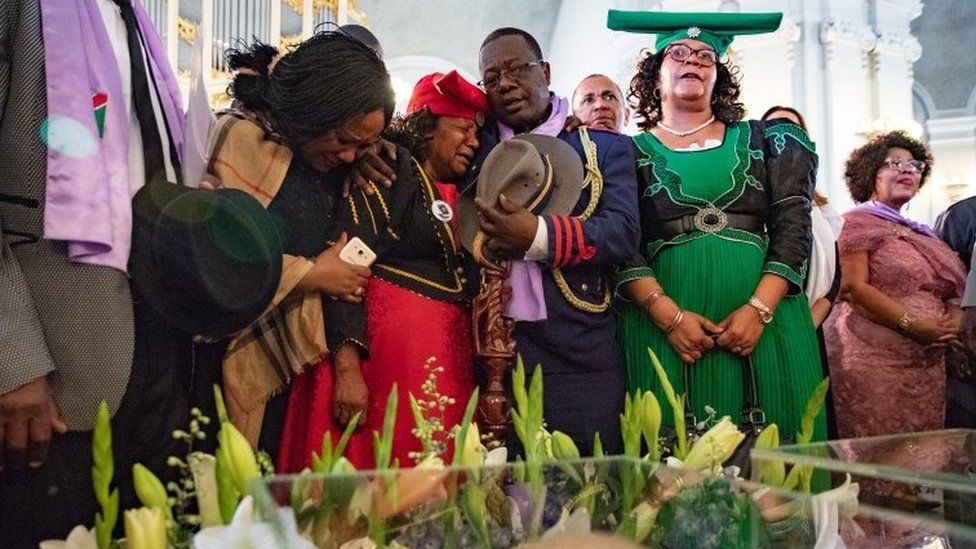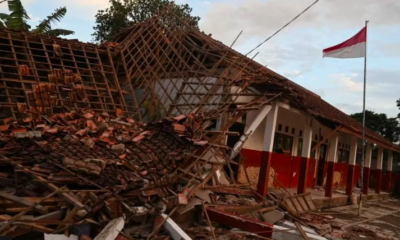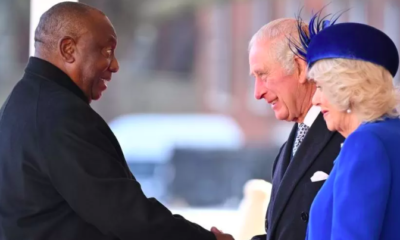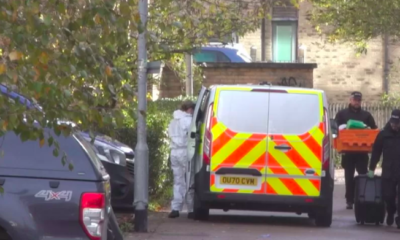
Germany has officially acknowledged committing genocide during its colonial occupation of Namibia, and announced financial aid worth more than €1.1bn (£940m; $1.34bn).
German colonizers slaughtered a huge number of Herero and Nama individuals there in mid twentieth Century slaughters. Unfamiliar Minister Heiko Maas said his nation was asking Namibia and casualties’ relatives for absolution. However, activists say the guide isn’t sufficient to address the enduring perpetrated. The cash will evidently be paid out more than 30 years through spending on framework, medical care and preparing programs profiting the affected networks. “We will currently authoritatively allude to these occasions as what they are from the present viewpoint: massacre,” Mr Maas said, adding that provincial time activities ought to be talked about “without saving or gleaming over”.Friday’s assertion came following five years of arrangements with Namibia – which was under German occupation from 1884 to 1915. The outrages submitted have been portrayed by history specialists as “the failed to remember slaughter” of the mid twentieth Century, in what was then known as German South West Africa. The UN characterizes massacre as various demonstrations, including murdering, submitted with the aim to obliterate, in entire or to some extent, a public, ethnic, racial or strict group.The slaughter started in 1904 after a Herero and Nama resistance over German captures of their property and dairy cattle. The top of the tactical organization there, Lothar von Trotha, required the elimination of the populace in response.Survivors from the Herero and Nama populace were constrained into the desert and later positioned in death camps where they were misused for work. Numerous kicked the bucket of infection, depletion and starvation with some subject to sexual abuse and clinical experimentation. It is concocted to 80% of the native populaces passed on during the massacre – with a loss of life during the several thousands. Germany has recently recognized the barbarities yet precluded paying restitutions. In 2018 they localized some human remaining parts to Namibia which had been utilized as a component of now-undermined research endeavoring to demonstrate the racial predominance of white Europeans. The most recent arrangement was allegedly concurred during a series of dealings held by exceptional emissaries in mid-Man.An assertion is relied upon to be endorsed by the German unfamiliar pastor in the Namibian capital, Windhoek, one month from now prior to being approved by every nation’s parliament, German media reports say. President Frank-Walter Steinmeier is then expected to head out to the nation to authoritatively apologize. Laidlaw Peringanda, a Herero lobbyist and director of the Namibian Genocide Association, said the proposal of advancement help was adequately not. “We’re really not tolerating that offer on the grounds that our kin have lost terrains, they have lost their way of life and a great deal of them have escaped to Botswana, South Africa and some of them were taken to Togo and Cameroon,” he revealed to BBC World Service. He demanded that Germany should repurchase genealogical grounds now in the possession of the German-talking local area, which apparently makes up under 1% of the populace. “Individuals are getting anxious, particularly the minority individuals of color who [don’t] have a land parcel,” he said. “Furthermore, based on the thing I’m hearing from a portion of individuals, there will be a land insurgency. Individuals will snatch the land forcibly. So we should really attempt to keep away from these things.” Mr Maas said the arrangements had intended to track down “a typical way to veritable compromise in memory of the people in question” with individuals from the Herero and Nama people group firmly engaged with talks. Another disputed matter is around language. The concurred bargain centers around the possibility of compromise over formalized pay, with Mr Maas portraying the guide bundle as a “motion” instead of reparation.Jürgen Zimmerer, teacher of worldwide history of University of Hamburg, told the BBC World Service an extraordinary number of relatives of the survivors of the decimation felt avoided. “This is a serious issue if compromise is the point,” he said. “How would you accommodate with the people in question if the casualties understand left of the whole cycle?” Tim Whewell, composing for the BBC recently about the exchanges, said the conversations were the first of their sort by a previous pioneer power. He composed that numerous Herero and Nama living in packed regions or casual settlements had trusted the arrangement would go some approach to reestablishing land access and a portion of the thriving their precursors delighted in before the annihilation.





































































































































































































































































































































































































































































































































































































































































































































RSS